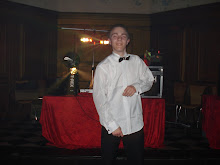Comparisons with other works
The show's creators have answered criticism over similarities between elements of the show and the X-Men in their live blog, saying "I think there is a shorthand to compare it to X-Men when you have not yet seen the show. However, my guess is that that comparison will go away once you have seen what we are doing."[133][134]
On February 7, 2007, Jeph Loeb, co-executive producer of Heroes and the other creators compared Heroes to 24, stating that, like 24, each season would conclude and the next season would introduce a new plotline. In the same interview, Tim Kring compared Heroes to Eternal Sunshine of the Spotless Mind and The Incredibles, stating the characters in Eternal Sunshine were "ordinary...and unexpected," but well responded to; and the characters in Disney/Pixar's The Incredibles were superpowered people who had to deal with the stresses and problems that arose when they attempted to live a normal life.[36][135]
Bob Smithouser at pluggedinonline.com, reviewed the Heroes pilot and compared it as a combination of elements from The 4400, Lost, X-Men, and Stephen King's The Stand.[136] Aron Coleite and Joe Pokaski have stated that "comics have a huge influence on us." Watchmen, "Days of Future Past", Y: The Last Man, The Dark Knight Returns, and The Long Halloween are a few examples that they gave. Other non-comicbook examples included the 9/11 documentary Loose Change and the novel The Fourth K by Mario Puzo.[137]
Critical reception
During the series' first season, the American Film Institute named Heroes one of the ten "best television programs of the year."[87] Doug Elfman of the Chicago Sun-Times stated, "the show's super strengths are its well-developed filmmaking, smooth pacing and a perfect cast. It views like the first hour of a fun, thoughtful movie." Barry Garron at the The Hollywood Reporter also stated, "Heroes is one of TV's most imaginative creations and might, with luck, become this year's Lost."[88] Less favorable reviews included the Philadelphia Inquirer, who commented that although the show had lots of "cool effects," it "lands, splat, in a pile of nonsense and dim dialogue." In response to the first pod of season one episodes, The Chicago Tribune went as far as saying, "you could watch the first few episodes of Heroes, or you could repeatedly hit yourself on the head with a brick. The effect is surprisingly similar."[89] At Metacritic, the Heroes pilot received a 67/100, with generally favorable reviews from critics.[90]
The second season of Heroes was criticized by commentators and fans for a much slower pace, less engaging storyline and lack of focus compared to the first season. Milo Ventimiglia stated that "when there's a little bit of a delay, there's not that instant, rewarding scene or moment or episode… people get impatient, so it has been extremely important for them to strike a balance between giving and getting."
Mythology
Main article: Mythology of Heroes
Activating Evolution
Heroes includes some mysterious fictional recurring elements that have been ascribed to science fiction or supernatural phenomena. Tim Kring and the creators of the series refer to these fictional elements as part of the mythology of the series. Kring confirmed that although the show has a unique mythology, he does not want to sink too deeply into it. Rather, Kring has used volumes to wrap up ongoing plot lines instead of carrying storylines over long periods of time as in Lost.[84] As far as the overall mythology of the series, Kring said, "we have talked about where the show goes up to five seasons."[1][85] As far as the show's ending date, Kring has commented that, "This show doesn't posit an ending…" The show does not have a designated ending point and is "open-ended."[86]
Among the show's mythological elements are the Company, the legend of Takezo Kensei, paintings of the future, superpowers and their origins, the Shanti virus, 9th Wonders! comic book and numerous other elements and mythological themes.
Subscribe to:
Post Comments (Atom)

No comments:
Post a Comment